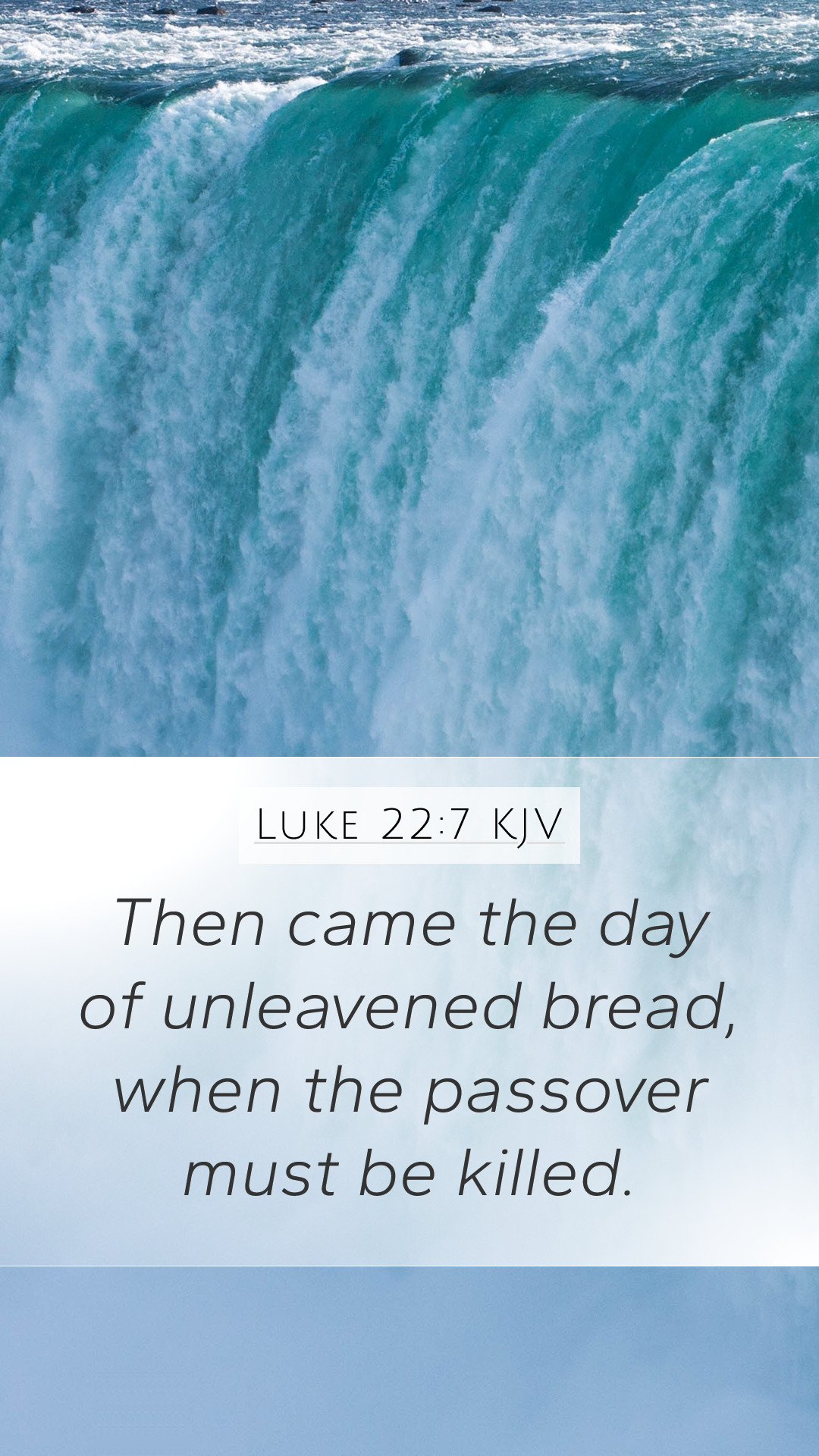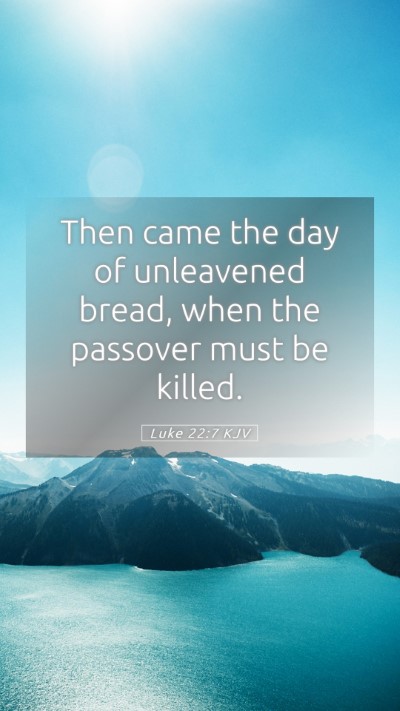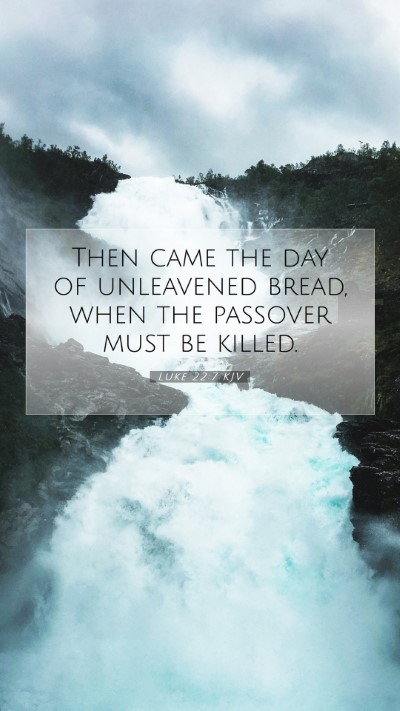Bible Verse Meaning of Luke 22:7
In Luke 22:7, the scripture states: “Then came the day of unleavened bread, when the Passover must be killed.” This verse marks a significant moment in the Christian tradition, indicating the time when the Passover lamb was to be prepared, symbolizing Jesus Christ as the ultimate sacrifice. This passage sets the scene for the Last Supper and highlights key elements of both Jewish tradition and Christian theology.
Understanding the Context
This verse occurs within the context of the final days of Jesus' earthly ministry. The phrase “the day of unleavened bread” connects to Jewish customs during the Passover festival, which was deeply rooted in the history of Israel's deliverance from Egypt. Public domain commentaries such as those by Matthew Henry, Albert Barnes, and Adam Clarke provide rich interpretations, emphasizing historical and theological significance.
Historical Significance
According to the commentaries:
- Matthew Henry points out that the Passover represents God’s deliverance, and the killing of the lamb had profound implications for understanding Christ’s sacrificial role.
- Albert Barnes emphasizes the fulfillment of the Old Testament prophecies, suggesting that Jesus embodies the Passover lamb, whose blood saves from spiritual death.
- Adam Clarke highlights the transition from the old covenant, marked by Passover, to the new covenant established through Christ’s sacrifice.
Spiritual Insights
Luke 22:7 offers deep spiritual insights and has been interpreted through various lenses:
- Significance of Tradition: The adherence to tradition shows the importance of understanding the roots of one’s faith.
- Foreshadowing Sacrifice: The timing of Jesus' crucifixion during Passover carries significant weight, presenting Him as the suffering servant and ultimate Passover lamb for humanity.
- Invitation to Reflection: Believers are invited to reflect on their own spiritual journey and the meaning of sacrifice in their lives.
Application for Today
In understanding Luke 22:7, various applications emerge for daily life:
- Understanding Scripture: Believers are encouraged to delve into scripture and grasp the significance of Jesus' teachings within the context of both the Old and New Testaments.
- Embracing Sacrifice: Followers of Christ are called to recognize the cost of discipleship and what it means to take up one's cross.
- Bible Study Groups: Engaging in discussions with Bible study groups can enhance understanding of difficult passages, including the layers of meaning found in Luke 22:7.
Commentary Insights
Public domain commentaries provide a detailed look:
- Matthew Henry’s Commentary: Provides a robust analysis highlighting both the literal and spiritual contexts of Passover practices.
- Albert Barnes’ Notes: Focuses on the implications of Christ fulfilling the law and the prophets through His sacrificial act.
- Adam Clarke's Commentary: Discusses the theological implications of Jesus’ role during the Passover and how this encapsulates the essence of New Testament salvation history.
Cross References
Luke 22:7 connects powerfully with several other scripture passages:
- Exodus 12:1-14: The establishment of Passover and the significance of the blood of the lamb.
- John 1:29: John the Baptist referring to Jesus as "the Lamb of God who takes away the sin of the world."
- 1 Corinthians 5:7: “For indeed Christ, our Passover, was sacrificed for us,” highlighting the theological connection.
Conclusion
Understanding Luke 22:7 not only enriches one's knowledge of biblical events but also invites believers to explore themes of sacrifice, redemption, and the fulfillment of God's promises. Through comprehensive scripture analysis, one can uncover the layers of meaning and application relevant to both historical and contemporary Christian life.


